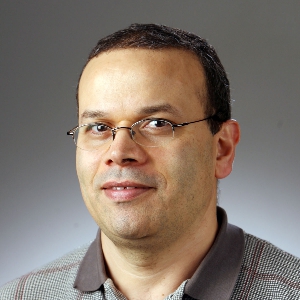Research And Grants

Cincinnati Children's Hospital - $75,000
Dr. Rachid Drissi
$75,000.00
March 2010
Translational
DIPG
Telomerase: A Therapeutic Target in Pediatric Brain Tumors
Five-year overall survival in childhood high-grade gliomas (HGG) and disseminated high-risk medulloblastoma is 25% and 30%. Moreover, hemispheric or craniospinal radiotherapy, at a young age leads to devastating neurocognitive decline. Achieving a cure for children with these poor prognosis malignancies while minimizing radiotherapy-associated sequelae remains a major goal of pediatric neuro-oncology. A hallmark of cancer cells is their unlimited proliferative potential which correlates closely with telomere length. The vast majority of malignant tumors activate telomerase to maintain telomere length, whereas this activity is barely detectable in most normal human somatic tissues. The inhibition of telomerase will, therefore, selectively limit the proliferation of cancer cells, leading to telomere erosion and cell death. Telomerase activity is an important prognostic factor in many CNS malignancies. Our preliminary data show that cells with short telomeres are much more sensitive to ionizing radiation than their counterparts with longer telomeres. We hypothesize that telomerase inhibition will sensitize cancer cells to DNA-damaging agents, hence making radiotherapy more effective at lower doses and minimizing its devastating sequelae. We propose to test this hypothesis in childhood HGG models, generating critical data to conduct the first Phase I trial of a telomerase inhibitor in children with CNS malignancies. This innovative approach could have an important impact in developing pediatric brain tumor trials. Although the ultimate goal of this proposal is to improve the outcome and minimize the devastating side effects of radiotherapy for children with high-grade glioma, the proposed approach could potentially be used in all childhood solid tumors with telomerase activity. The translation of this research will most likely impact our approach to design an effective strategy to eliminate resilient cancer cells by using a telomerase inhibitor in combination with standard therapies.

